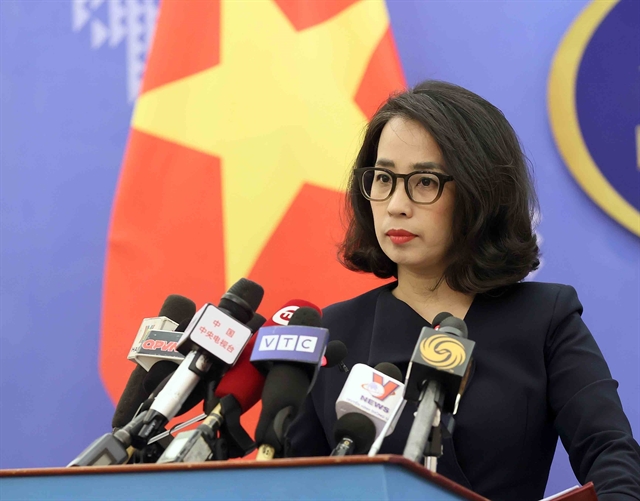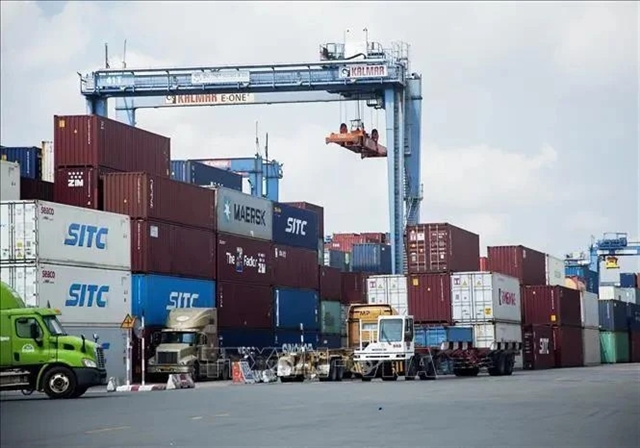

Teachers should constantly seek new perspectives and update their teaching approaches to prepare students with the knowledge and skills needed for the increasingly competitive job market in the era of the Fourth Industrial Revolution.
Teachers should constantly seek new perspectives and update their teaching approaches to prepare students with the knowledge and skills needed for the increasingly competitive job market in the era of the Fourth Industrial Revolution.
This was the message conveyed by experts participating in the conference: "Quality Schools for Vietnam 4.0: Insights, Challenges, Tools" organised by the Hanoi Department of Education and Training, the United Nations International School (UNIS) and British University Vietnam (BUV) at the BUV Ecopark campus on May 12th.
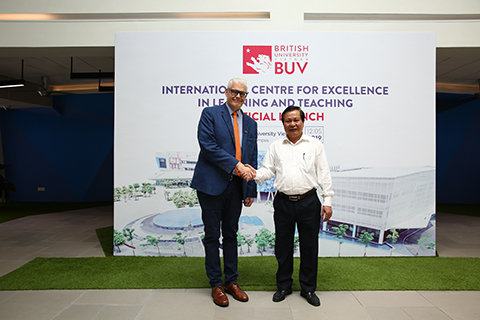
|
BUV officially launched the International Centre for Excellence in Learning and Teaching
With a youthful population, a strong universal education system and a growing reputation for the advancement of science and technology, Viet Nam is on the right track to taking full advantage of Industry 4.0 technologies.
In this context, educators will play a pivotal role in nurturing creative, forward-thinking students to contribute to the continued success of the country on a global level.
“The World Economic Forum has highlighted that the Fourth Industrial Revolution is inextricably bound to learning,” Dr Tshering Lama from the World Economic Forum (WEF) said at the conference, which drew more than 120 educators, representatives of education authorities and high-profile speakers.
“Education is and has been the only agent for initiating and executing sustainable change, which begins in the classrooms of schools and universities," he said. "Therefore, the future of a nation is in the mind of the teachers and students."
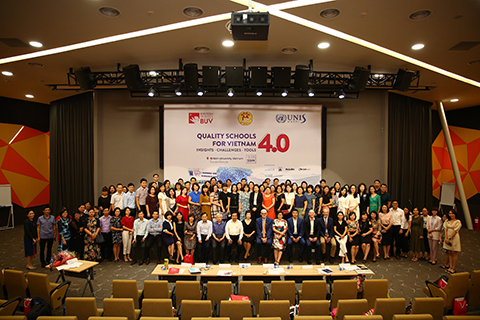
|
The conference helped education managers and educators to acknowledge challenges, trends and solutions in the Industry 4.0
Dr Lama also cited examples of advanced education systems in the world which have adapted to "harness the Fourth Industrial Revolution" and “ensure their students acquire skills needed for future jobs".
He said the success of the Finnish education system is largely attributed to academic pedagogical research by highly educated and skilled teachers who are all required to hold at least a master’s degree in education.
For teachers, constantly updating their knowledge and teaching methods is crucial, especially in the era of Industry 4.0.
“Today’s teaching methods and approaches should be practical, innovative, demonstrative and globally relevant through investing in our teachers and development,” he said.
From the perspective of employers, Lan Ngô, Regional Director of Navigos Search, said: “Educators need to update their knowledge, adopt new pedagogical methods, shift from teacher-centred to learner-centred approaches and prepare their students with the capacity for innovation, creativity and critical thinking.”
“Schools should also co-operate with businesses, which are willing to give support to teachers in educating students.”
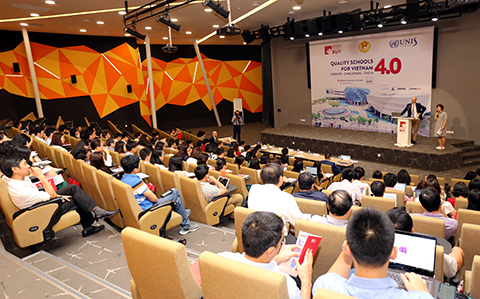
|
It is estimated that by 2050, about 50 per cent of current job roles will disappear as a result of disruptive technologies and practices.
To meet the changes brought about by Industry 4.0, students should equip themselves with not only technical knowledge but also crucial skills and capabilities, Lan said.
Strengthening STEM education
One of the approaches to stimulate and prepare learners to enter life and the workforce in Industry 4.0 is to strengthen STEM education in schools.
Bui Anh Duong, an English teacher at the Hanoi-Amsterdam High School for the Gifted, said schools need to pay attention to STEM education and have a team of teachers who are STEM experts.
Duong said one of the most effective ways to engage students in STEM education is through after-school clubs.
There are currently dozens of clubs dedicated to science and robotics at Hanoi-Amsterdam, including the Society of Open Science, Green HNA Robotics Team and Science Fair. Many of them are run entirely by students, according to Duong.
The school also includes STEM in other subjects and the training programmers for gifted students that will compete in local and international science contests.
Training centre for teachers
Within the framework of the conference, BUV launched the International Centre for Excellence in Learning and Teaching. The newly founded centre holds the aim of providing contemporary and innovative teacher training and continuous professional development programmes of the highest quality to educators, educational institutions and other stakeholders in the education space operating within Viet Nam and in the region.
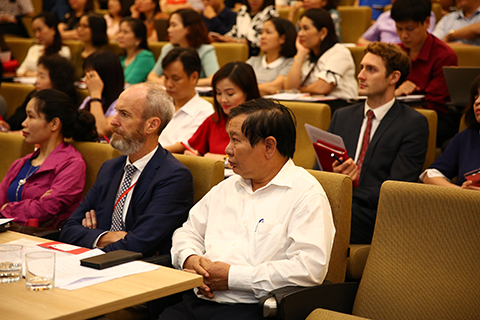
|
Deputy director of Hà Nội Department of Education and Training Lê Ngọc Quang delivered a speed at the conference.
Speaking at the event, Le Ngoc Quang, Deputy Director of Hanoi Department of Education and Training, said: “Viet Nam is in the process of strong innovation in education. Ha Noi is determined to pioneer this innovation process. One of our very important priorities is international co-operation and we are looking to the world’s most advanced education and selecting reputable international partners to collaborate and grow together.”
Christopher Jeffrey, Chief Academic Officer of British University Vietnam, said: “Working in conjunction with the Ministry of Education and Training, BUV is committed to the development of the education sector at all levels, we are very proud to launch the International Centre for Excellence in Learning and Teaching, ICELT, to support Viet Nam’s ambitions to take full advantage of Industry 4.0.”
With leading experts and leaders in educational research and philosophy, the centre will provide guidance and advice based on the best practices, playing an important role in enhancing and developing the capability of educational managers, contributing to equipping students with a lifelong learning spirit for Industry 4.0 and beyond.
Participants can pursue several programmes including a Postgraduate Certificate in Education (PGCE) granted by the University of London and a Career Development Training Program under the Cambridge system.




